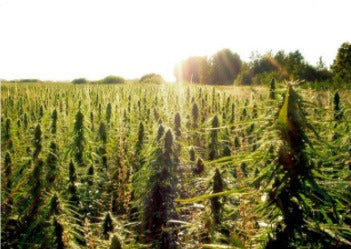
Are you feeling a sleepy, couch-like high or an uplifting one that transforms you into a social butterfly? The effects of cannabis strains can vary, but one of the main differences between them is whether they are indica or sativa. Indica strains are known for their chill. As new cannabinoids continue to emerge, such as Delta 10 THC, questions naturally arise about their similarities to these well-established strains. Delta 10 THC hasn’t been as well-studied as THC or CBD, so its effects aren’t fully understood yet. However, we’re going to explore the impact of this cannabinoid to help determine whether Delta 10 is more like sativa or indica strains.
Sativa vs. Indica: What’s the Difference?
Before we start diving into the lesser-known cannabinoid Delta 10, let’s set a foundation for the things that we do know. Sativa and Indica strains are the two primary classifications of cannabis plants, each boasting its own set of distinct characteristics and effects. Once you understand the differences between indica and sativa, you can narrow down strain options to find which one best achieves your desired effects.
What Are Sativa Strains?
Sativa strains are native to warm climates. They are typically tall, slender plants with thin, elongated leaves.
Strains that are sativa have a longer flowering period. They require more time to mature and develop full THCA concentration compared to indica strains.
Sativa highs are often considered the more "energetic" and "uplifting" of the two types, making these strains a popular choice for daytime use or social get-togethers.
Popular sativa strains include:
- Jack Herer
- Sour Diesel
- Green Crack
- Durban Poison
- Amnesia Haze
What Are Indica Strains?
Unlike sativas, indica strains thrive in cooler climates that tend to produce shorter, bushier plants that boast dark green leaves.
Indica strains have a shorter flowering period. This quality makes indica plants an attractive option for cannabis growers looking for faster harvests.
Highs caused by indica strains are often associated with relaxation, making them popular for nighttime consumption or when seeking support from occasional stress.
While sativa highs tend to influence the mind, indica effects are typically more body-centric, providing a sense of physical relaxation and calm. Users often report feeling a "body high" or "couch-lock" effect, making indicas the go-to choice for those looking to unwind at the end of a long day.
Popular indica strains include:
- Northern Lights
- Granddaddy Purple
- LA Confidential
- G-13
- Bubba Kush
What Are Hybrid Strains?
Life isn’t always so black and white. Neither is cannabis. Hybrids are just as the name sounds, a hybrid of both sativa and indica strains.
Hybrids are bred to offer a balance between the effects of sativas and indicas, providing users with a versatile option that can cater to a wider range of needs. The specific effects of hybrid strains depend on the ratio of sativa to indica genetics, which can be tailored to create unique combinations that offer the best of both worlds.
Popular sativa-dominant hybrid strains include:
- AK-47
- Trainwreck
- Pineapple Express
- Super Lemon Haze
- Strawberry Cough
Popular indica-dominant hybrid strains include:
- Girl Scout Cookies (GSC)
- OG Kush
- White Widow
- Blackberry Kush
- Wedding Cake
What Is Delta 10 THC?
Delta 10 THC is a relatively new cannabinoid that has gained significant attention in the cannabis industry. As one of the many compounds found in the cannabis plant, Delta 10 THC is a close relative of the more well-known Delta 9 THC, the psychoactive cannabinoid associated with marijuana use. Delta 10 is also a relative to the controversial cannabinoid Delta 8 THC.
Delta 9, Delta 8, and Delta 10 are all naturally occurring cannabinoids. However, whereas Delta 9 THC is abundant in marijuana, Delta 8 and Delta 10 are present in extremely small quantities.
Therefore, despite being a naturally occurring cannabinoid, most Delta 10 THC on the market is synthetically engineered from other cannabinoids through a chemical process. It’s crucial to note that research on Delta 10 THC is still in its infancy. There is much to be learned about Delta 10’s effects and potential applications, and it should be used responsibly.
Is Delta 10 More Like Sativa or Indica?
As we’ve mentioned, the effects of Delta 10 THC haven’t been studied thoroughly. Based on user experiences and preliminary research, Delta 10 THC is a psychoactive cannabinoid. However, its potency is considered to be much milder than that of Delta 9 THC and Delta 8 THC.
Psychoactive effects are something that both indica and sativa strains can promote. However, Delta 10 THC is just one of the other various cannabinoids, terpenes, and phytonutrients to contribute to the high and whether its effects are uplifting, relaxing, or somewhere in between. Therefore, it’s challenging to determine whether Delta 10’s effects are more in line with an indica experience or a sativa one.
With that said, Delta 10 THC works much like Delta 9 THC. It binds to CB1 receptors present in the brain, spinal column, and central nervous system. Many users tend to feel energized, with a slightly uplifted mood. These experiences tend to fall in line with the effects of sativa strains. Therefore, Delta 10 THC might be a little more like a sativa strain, but this can vary greatly depending on the strain itself.
Is Delta 10 THC Legal?
Delta 10 THC's emergence in the market also owes much to the legal loopholes surrounding the 2018 Farm Bill. This legislation legalized hemp-derived products so long they contained less than 0.3% Delta 9 THC on a dry weight basis.
Being so precise inadvertently created a gray area for other THC analogs, like Delta 8 and Delta 10, to be sold in the United States. While the legality of these compounds remains uncertain and varies from state to state, their growing popularity has led to an increase in Delta 10 THC products derived from hemp.
These hemp-based products are marketed as a legal alternative to traditional marijuana products containing Delta 9 THC. It is important to educate yourself on local and federal laws whenever you purchase or travel with cannabis products.
Should I Use Delta 10 for Sativa or Indica Effects?
Delta 10 THC is a relatively new and intriguing cannabinoid that has captured the attention of the cannabis industry and consumers alike. While its effects are still being researched, early anecdotal evidence suggests that it may exhibit properties similar to sativa strains, although individual experiences can vary.
It's essential to remember that our understanding of Delta 10 THC is still developing, and further studies will undoubtedly shed more light on this fascinating cannabinoid. In the meantime, use responsibly and monitor how you feel to ensure a safe and beneficial experience.
Hannah Smith is Joy Organics Director of Communications. She is driven by her passion for providing clear and accessible wellness and CBD education. In 2015, she received her BA in Media, Culture and the Arts from The King’s College in New York City and before Joy Organics, worked as writer and photographer in the Middle East and North Africa. Her work has been featured on Forbes, Vice, Vox, Denver Post, and the Coloradoan.







